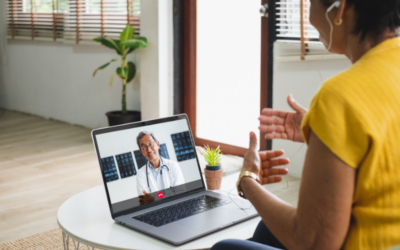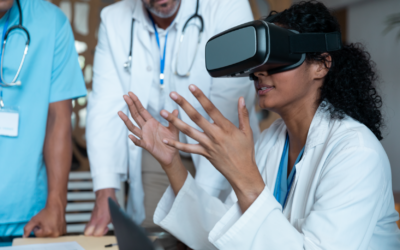Shared Decision-Making in Action: How SPs Can Improve Patient Engagement in Treatment Plans
SPs Provide a Collaborative Approach to Shared Decision-MakingShared decision-making (SDM) between clinicians and patients is a cornerstone of effective healthcare that fosters collaboration, empowers patients with knowledge, and actively involves them in their...
Trauma-Informed Care: Enhancing Medical Training with Standardized Patients
Trauma-informed care (TIC) is a crucial approach in healthcare that trains professionals to recognize and respond to trauma, especially those in healthcare, education, and disaster response. TIC uses an evidence-based framework to improve patient care and outcomes...
How SPs Can Expand Diverse Patient Encounters Beyond Clinical Rotations
Clinical rotations provide a diversity of clinical experiences to students, but diversity on a human level is just as important. Here’s how standardized patients can help fill the gap.
How Remote Simulations Help Prepare Providers for Telehealth Service Delivery
With virtual medical care now a regular occurrence for many practitioners, remote encounters with standardized patients can help learners better prepare for telehealth service delivery.
8 Best Practices for Conducting Debriefs to Maximize Simulation Learning Outcomes
How can learners get the most value from their SP simulation experience? Here are some best practices to facilitate reflection and growth during the debrief.
5 Essential Components of an Effective Standardized Patient Program
How can you tell if a standardized patient program satisfies the skill-building and curricula requirements for clinical competence? Let’s break down ASPE’s five domains of best practice.
Virtual Reality Nursing Simulations: Is It Enough for Learners?
Technological advances in VR can enhance the learning experience for nurses, but can it replace human interactions? We don’t think so, and here’s why.
How Healthcare Providers Can Achieve More Effective Learning and Meet CME Requirements with SPs
Traditional didactic models may be widely available, but are they effective? Here’s how SP scenarios leverage superior learning theories to drive real change in physician behavior.
Cultural Competence vs. Cultural Humility and Why We Need a Shift
What’s the difference between cultural competence vs. cultural humility? Let’s take a closer look and explore where healthcare professionals should strive to be.
Transgender Education for Healthcare Providers Amongst DEI Resistance
Transgender individuals don’t just deserve specialized care – they require it. Let’s explore the unique challenges and needs around transgender education for healthcare providers.










